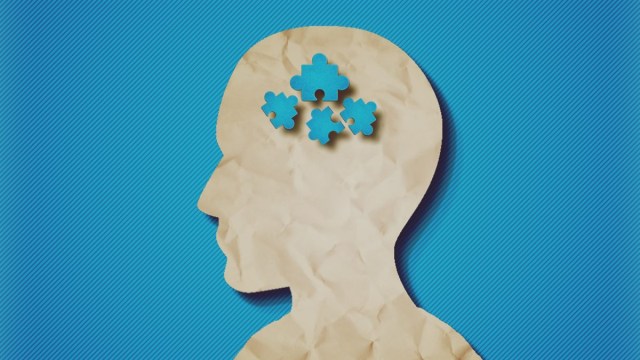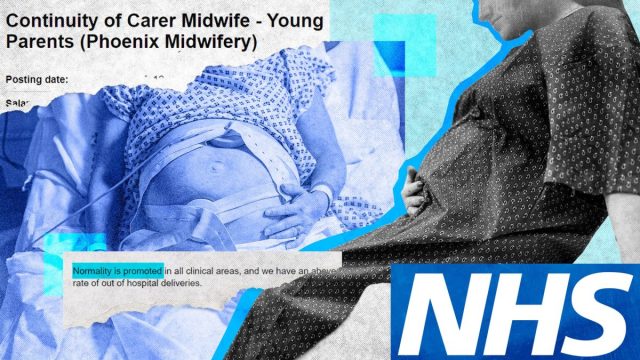
This is my science newsletter, a subscriber-only newsletter i. If you want to get it straight to your inbox, every week, you can sign up here.
Hello, and welcome backi‘Science Newsletter.
This week, there’s an exciting new study on depression, which offers hope for the development of better treatments and could also explain a surprising link between the condition. and memory problems.
A feeling of low mood and lack of motivation are definitely the most obvious features of depression. What may be less known is that many people with this condition also report memory impairment or other cognitive issues such as difficulty concentrating.
It is not clear why these symptoms overlap, but cognitive problems play a major role in disabling depression. “Cognitive problems are really common,” said Dr. Vibek Damm, a psychologist at the University of Copenhagen, who was involved in the study. “They are overlooked but they are important.”
New treatments are needed for this condition, as current antidepressants are not a cure. They only help about half of those who try, usually take a few weeks, and can also cause side effects such as weight gain and loss of libido.
In those that do help, antidepressants are sometimes reported to improve memory problems, but it’s not clear why. This is not really surprising considering that even scientists do not know how this drug achieves its main function – to elevate mood.
happy chemistry
The most common type of medication used, called selective serotonin reuptake inhibitors, or SSRIs, was long thought to work by increasing levels of a brain signaling chemical called serotonin, which was very low in depression. Serotonin is even known as the happy chemical.
However, the current thinking is that serotonin is not very low in depression, yet antidepressants may work by increasing its levels, except as I have recently covered.
The link to memory is a mystery, but it’s worth considering that serotonin is actually not just a happy chemical, but one of many different brain signaling molecules involved in many cognitive functions, including learning and memory. are involved
Recent research sheds more light on the relationship between depression and memory. By way of background, like many brain signaling molecules, serotonin functions by being released from a nerve cell and activating a receptor molecule on a neighboring cell, leading to serotonin signaling.
There are many types of serotonin receptors. And in the past few years, suspicions have grown that a subtype called serotonin receptor 4 may be more important in depression, especially because of animal studies where drugs that stimulate only this subtype elevate their mood. do
good memories
The new study investigated 40 people taking SSRI antidepressants, using a sophisticated brain scanning technique that could measure their serotonin receptor 4 levels.
People with higher levels of serotonin receptor 4 signaling perform better on memory tests – supporting the idea that this subtype is involved in memory problems associated with depression.
“This is the first time, to my knowledge, that someone has shown a direct link between a cognitive domain, in this case, verbal memory, and a specific receptor in depression,” said Dr. Diem.
While shedding light on neuroscience, it could also lead to the development of better antidepressants that directly target serotonin receptor 4, Dr. Diem said. “Now, if you give an SSRI, it hits all the serotonin receptors. We want to see if we can specifically target [the serotonin receptor 4]The better the better.”
Bowel connection
In fact, we already have a drug called procalopride that is used to treat constipation. (Many nerves in the gut also signal to each other with serotonin and serotonin receptor 4.)
Because of previous animal studies that affect serotonin receptor 4, other researchers have investigated whether people who take procalopride have a lower risk for depression — and they reported in August that this is indeed the case.
We have to wait for a randomized trial to be sure if this seizure medicine can also be an anti-depressant, said Psychiatrist Dr. Angard de Keats at the University of Oxford, who led the study.
There are also indications that seizure medications can improve memory in healthy volunteers.
“People should definitely not try to experiment on themselves,” she said. “But it adds to the growing evidence base that drugs that affect serotonin receptor 4, such as procalopride, hold promise as a potential new approach to treating depression.”
It’s possible that such drugs would only benefit depressed people who exhibit cognitive problems, Dr. Diem said. If so, it would be consistent with the growing belief that depression is not a single disorder but is actually an umbrella term for a variety of brain disorders that develop into clusters of symptoms.
“We are very excited that we may have a way to specifically target these cognitive symptoms — which may help many patients,” said Dr. Diem.
Other things I’ve written recently

All health care sometimes goes wrong, but there is one area of medicine that faces a serious and pervasive problem: the belief among some practitioners that natural childbirth is preferable and therefore medical assistance should be considered. .
NHS health chiefs instructed maternity departments to move away from a drive to promote “normal” births – vaginal births without medical intervention – two years ago, but in frontline, maternity units ideologically Divided by war. The best way to give birth.
i watch
Unable to On Netflix. This crime series is a few years old but on the recommendation of a friend I am bingeing all five seasons. If forensic science floats your boat, it’s not so much unforgettable as incredible. But don’t google it because there is a huge spoiler floating around the internet.
This is my science newsletter, a subscriber-only newsletter i. If you want to get it straight to your inbox, every week, you can sign up here.
#link #depression #memory #problems